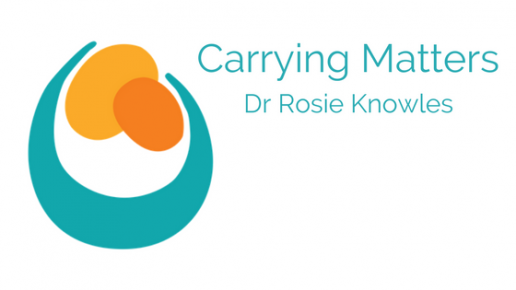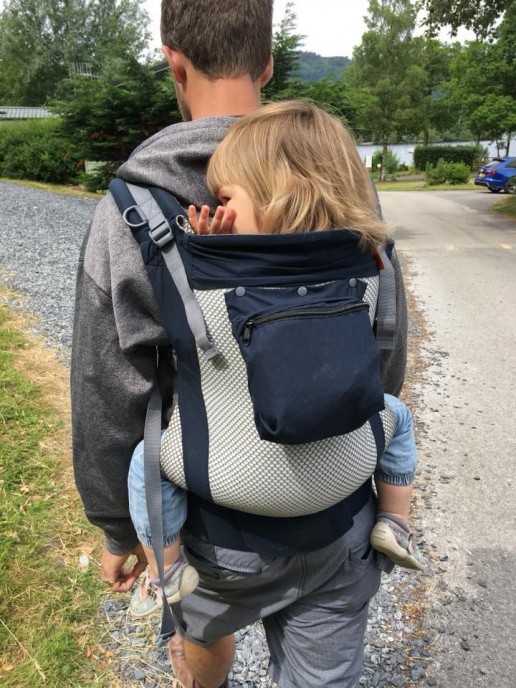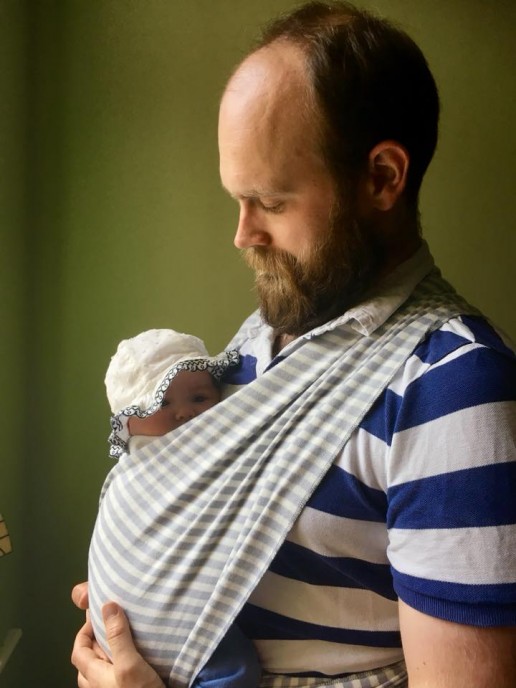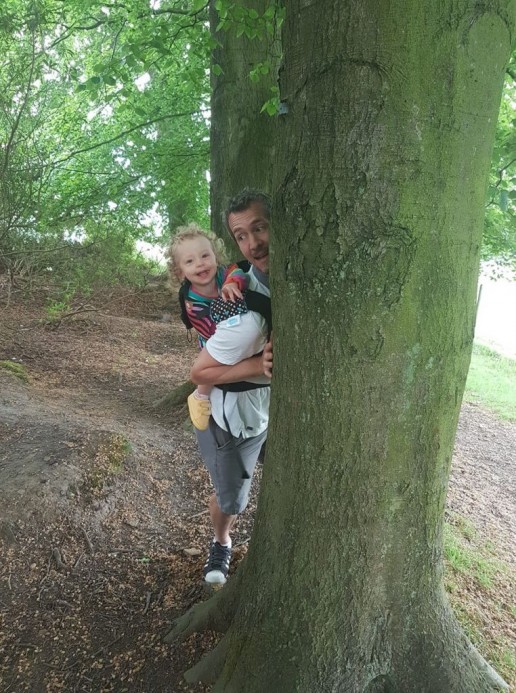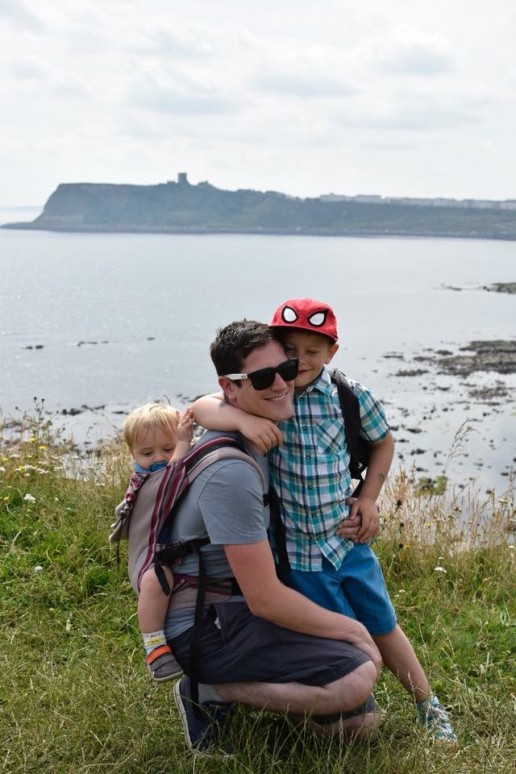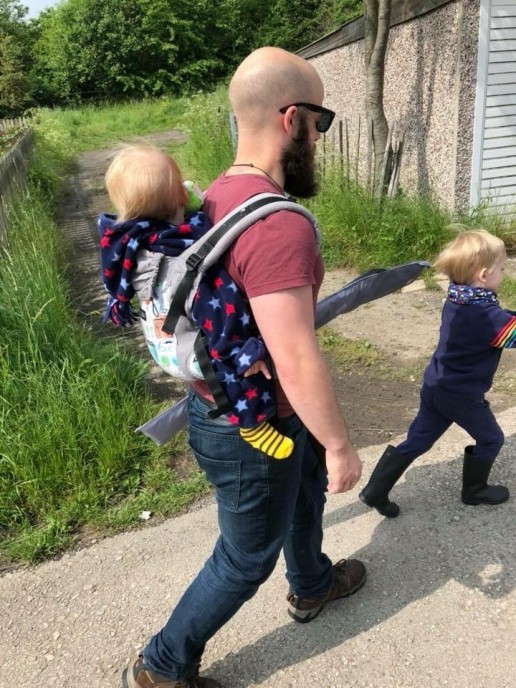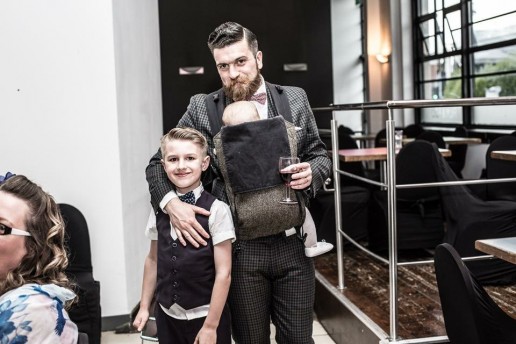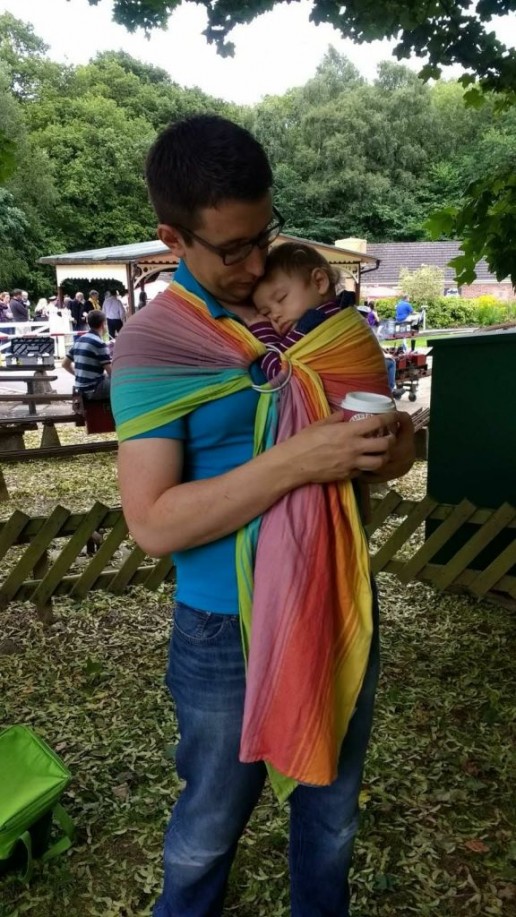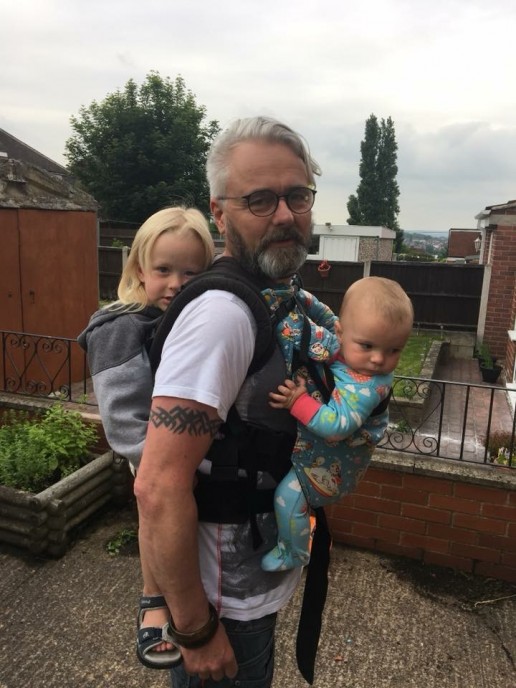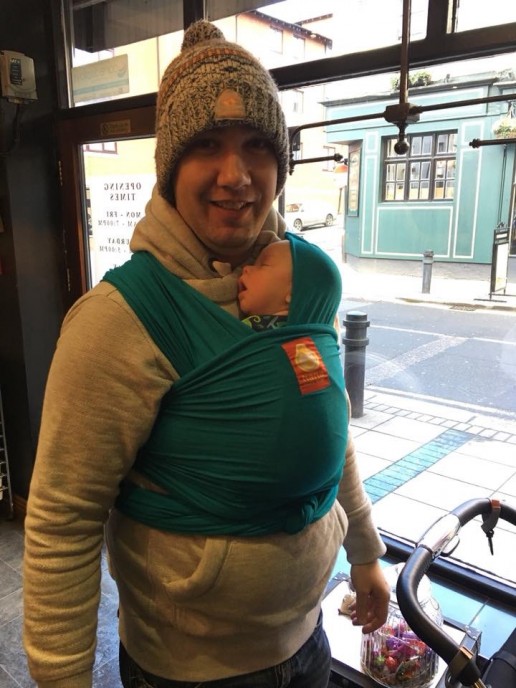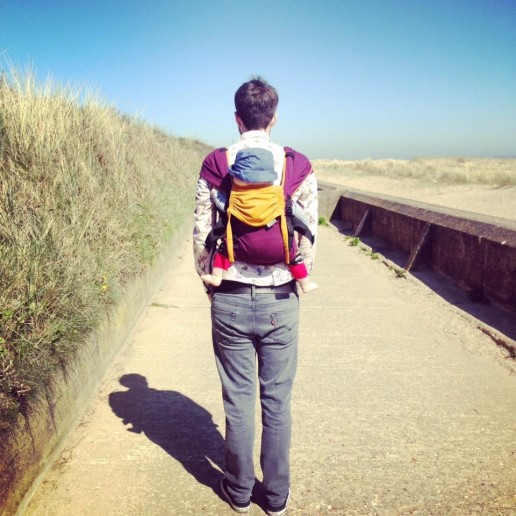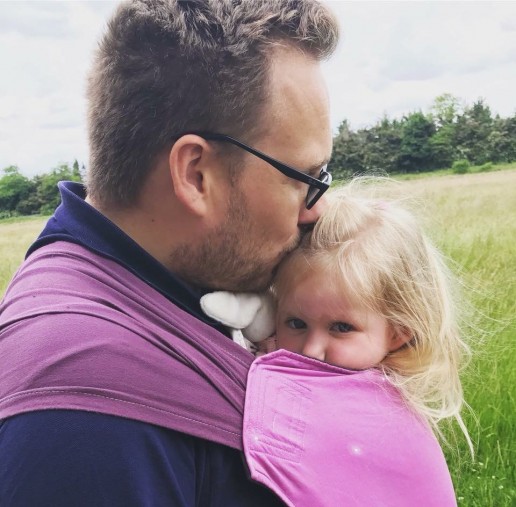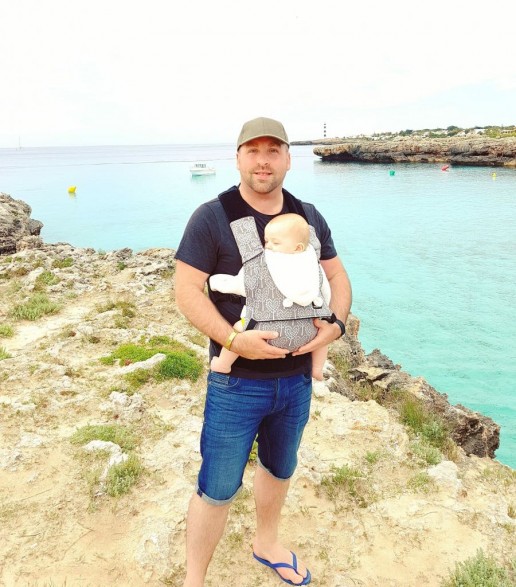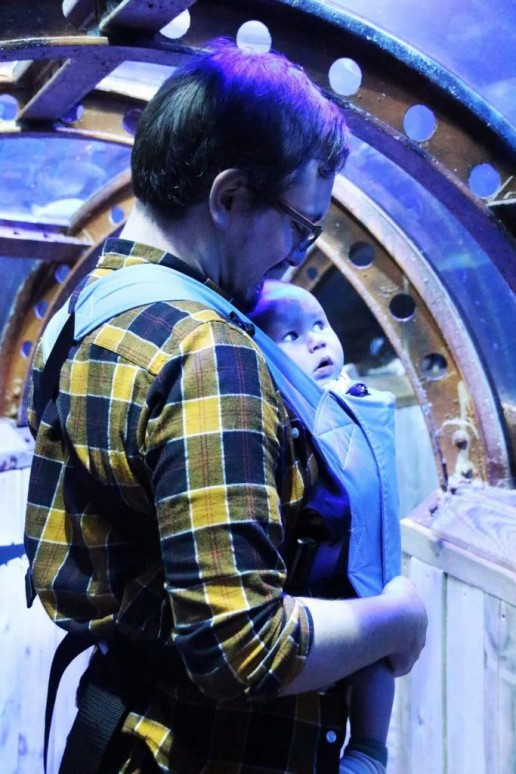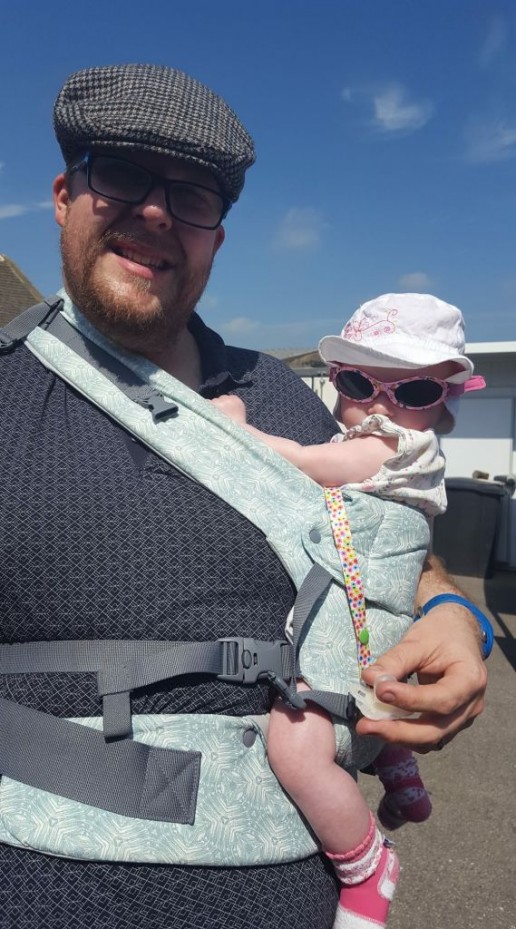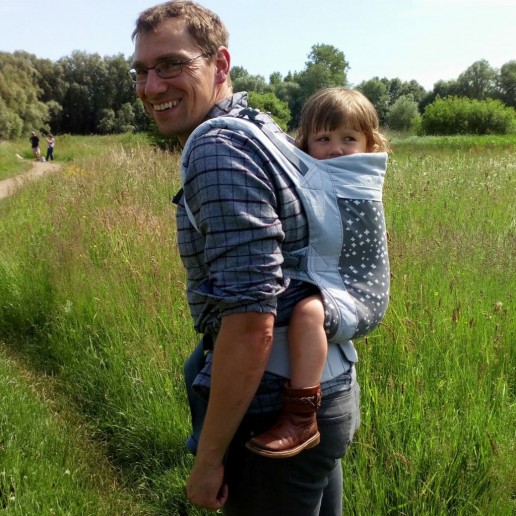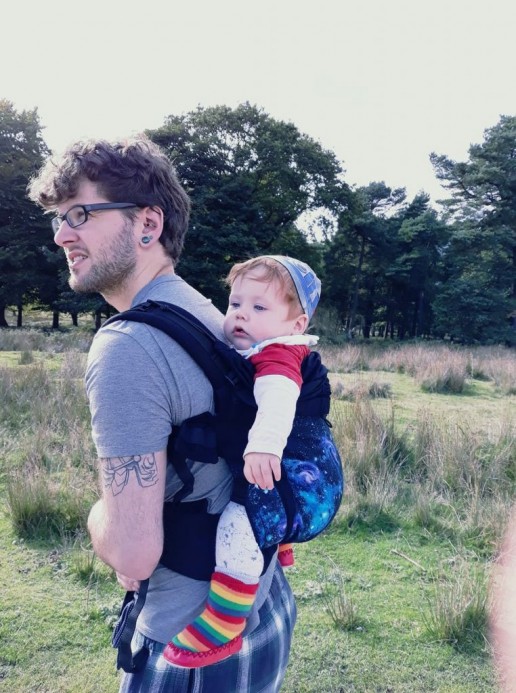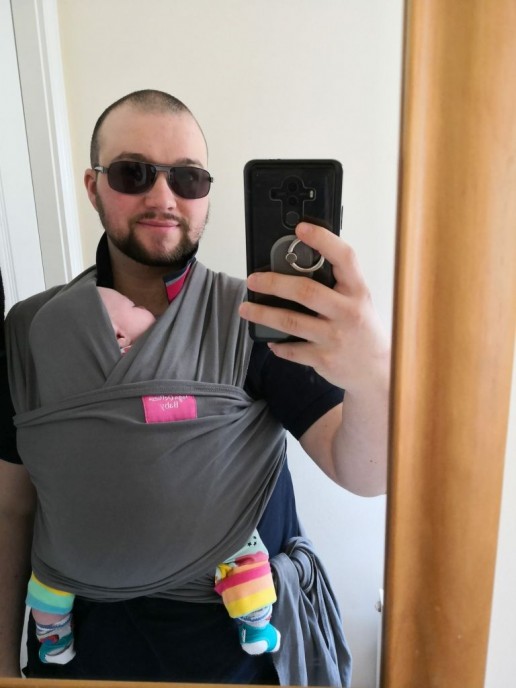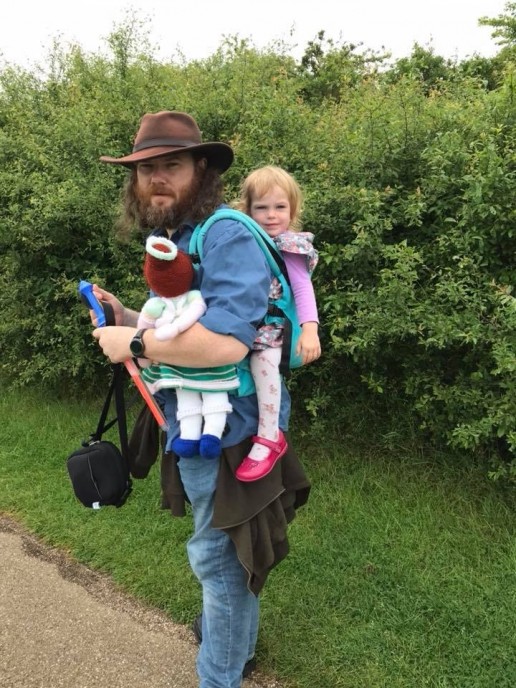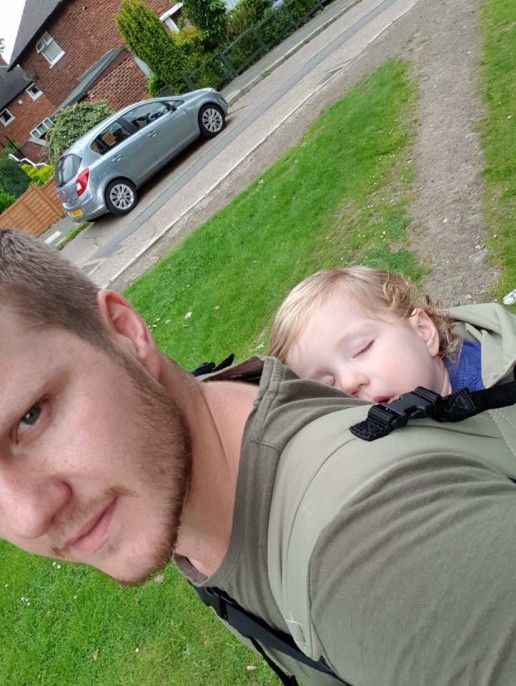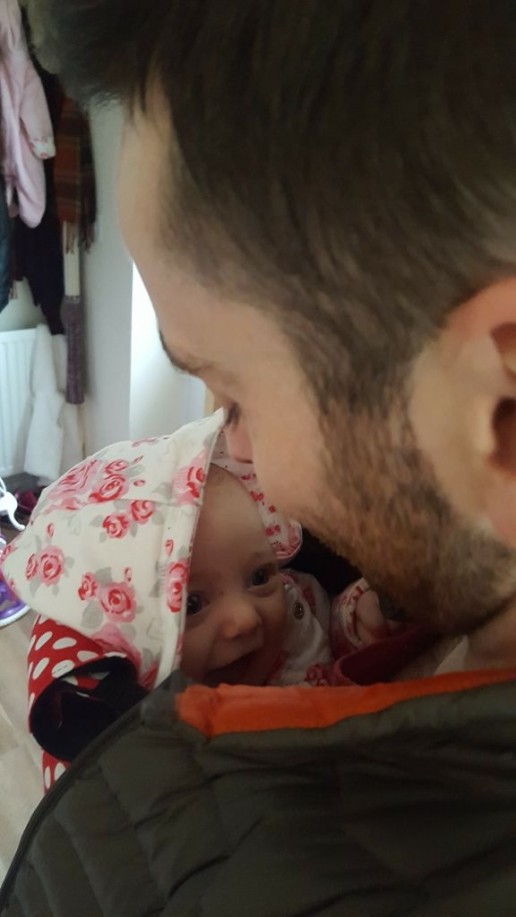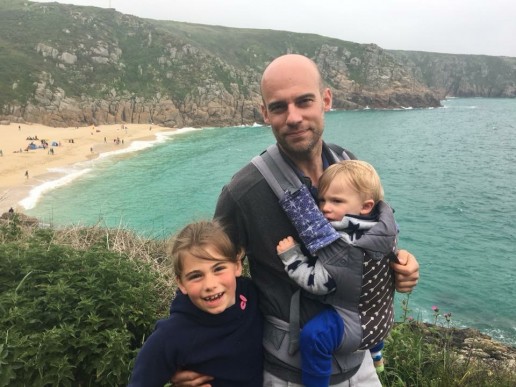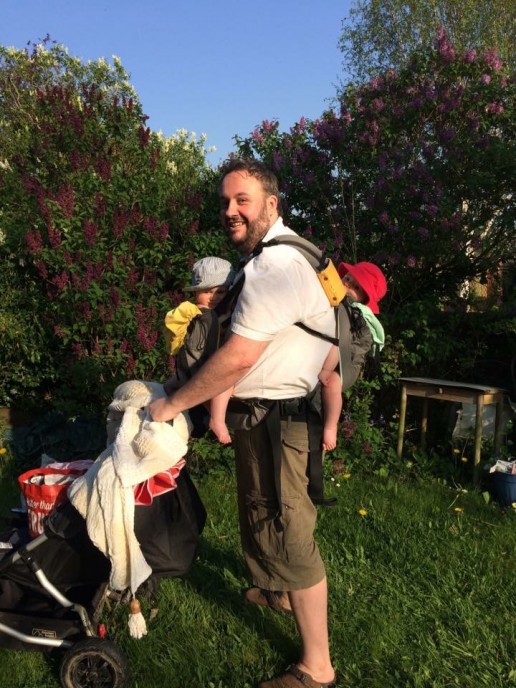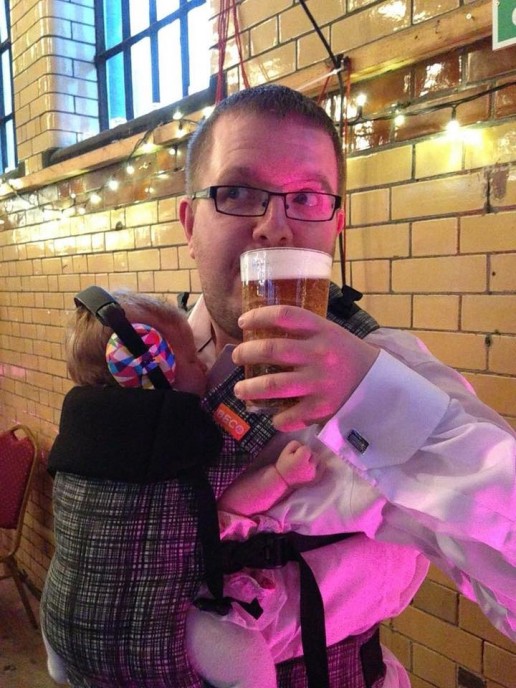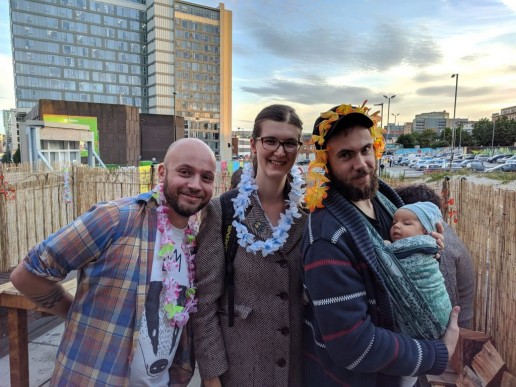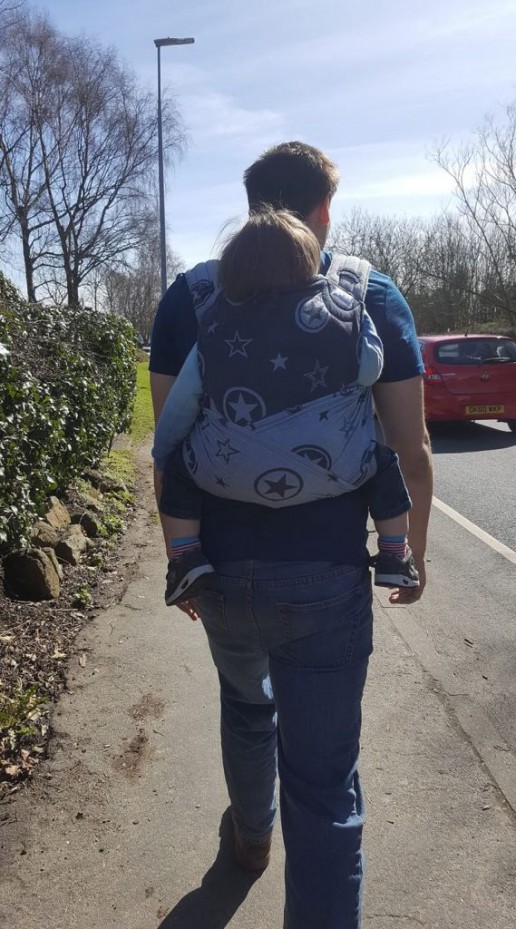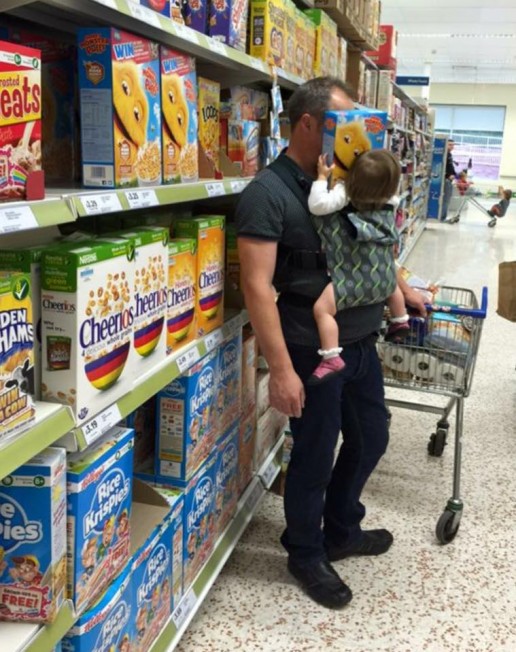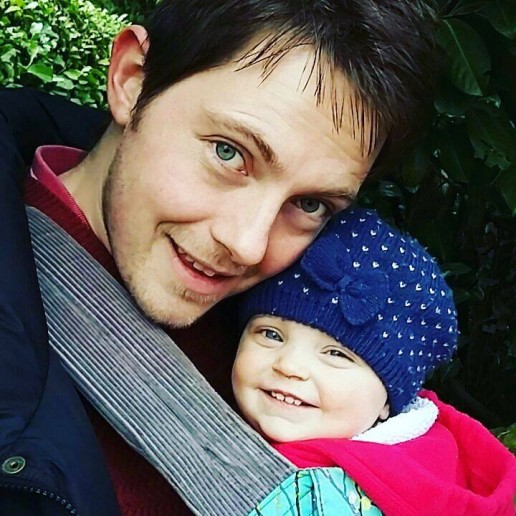A father who wants to be close to his child in a loving, nurturing and active way is to be celebrated; not just on Father's Day, but every day!
Babywearing dads rock; they are are very visible examples of men who have chosen to hold their children close and build secure attachment relationships.
They are rebels; countercultural people, who in fact are just being normal human beings, rather than those constrained by modern expectations of what a man “should be like.”
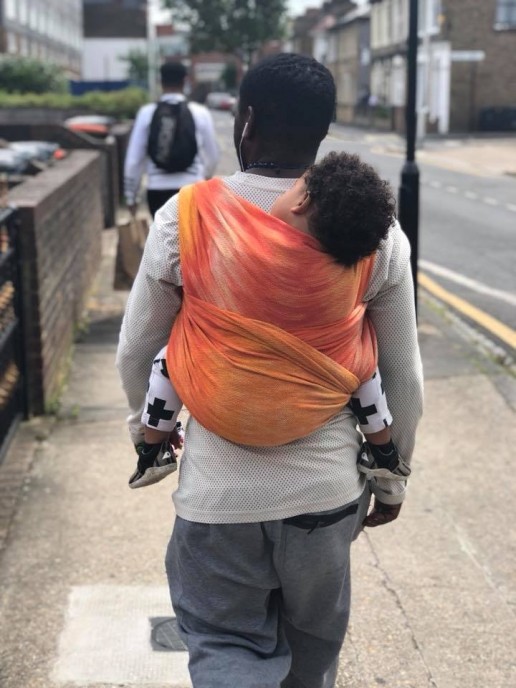
Dads matter to their families; the presence of an active, involved and loving father in a child’s life has a very significant impact on their future health and wellbeing.
Children thrive when they have a set of loving, responsive and mostly consistent relationships with their primary caregivers, no matter what gender they are. Many single parent families (usually mothers) do a wonderful job of caring for children, but there is no denying that positive fathering adds an extra dimension to family life.
Children thrive when they feel loved and nurtured, valued and respected by the people who are responsible for them, and love is often expressed through touch, holding, gazing and talking as well as playing; active demonstrations!
The patriarchal model of a nuclear family is of a slightly distant, authoritarian father-figure who goes out to work to provide for the family and is the head of the unit. The mother stays at home and cares for the children on her own, and provides for her husband when he comes back, keeping the children out of the way so that he can rest. This is a very new model in the history of the human race. It is not the most common model of family life around the world, and is only “traditional” for a very small group of people, so should not be seen or referred to as an ideal family structure.
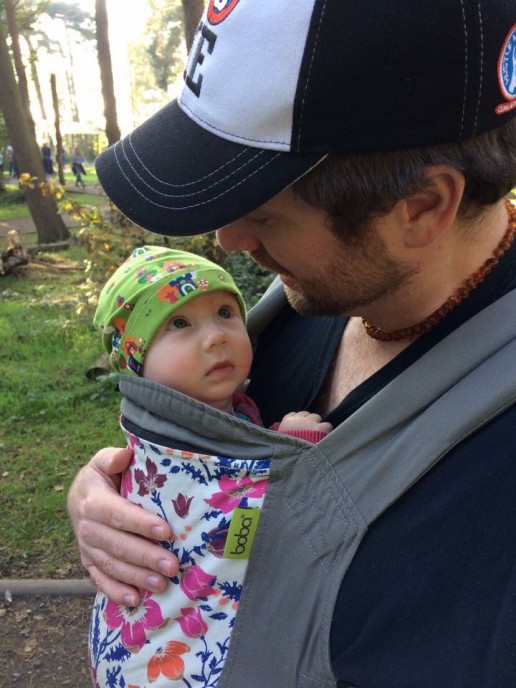
In the “Western” concept of society, men and boys are often encouraged to be “masculine” or to “man up”. Showing emotions, being loving, or enjoying the company of women and children is often perceived as “weak” or “feminine”.
Such attitudes are toxic, disrespectful to both men and women, and have very powerful negative effects on children who grow up around such stereotypes.
We should all be working to combat this, and babywearing dads are at the forefront of such efforts!
Update June 2019;
Many fathers struggle with their mental health after the birth of their baby, however, due to the societal expectations of them to be supportive, stoic and strong, few of them will speak up or ask for help.
A recent nationwide study in spring 2019 commissioned by Ergobaby UK “revealed that more than a third (34%) of British fathers claim they’ve experienced “post-natal depression”, with almost two thirds feeling anxious after the birth of their child and a third admitting they had found it hard to bond with their baby.
When asked how they felt embarking on this new journey, a quarter (24 per cent) of new dads said they felt under “massive pressure” to provide for their family, whilst 22% found the lack of sleep debilitating.
A fifth (21%) said they felt overwhelmed by their new responsibilities, 16 percent hated no longer having time to do the things they enjoy, and 15% feeling like they were failing their family.
The research also revealed that half (49%) of new dads felt a sense of shame for struggling to cope. When asked were this pressure came from 40% felt judged by family members, 32% by friends and more than a third of new dads felt pressure from society as a whole, with one in ten told to simply “get a grip”.
Little wonder then that more than half (55 per cent) of UK fathers don’t talk about their baby struggles, and instead suffer in silence.
And two in five British dads have been made to feel embarrassed for playing an active parenting role such as taking shared parental leave to wearing their baby in a carrier or pushing the pram.”
All the more reason for us to admire men who have spoken up, and to celebrate those who have found joy in their fatherhood. These men help to free others.
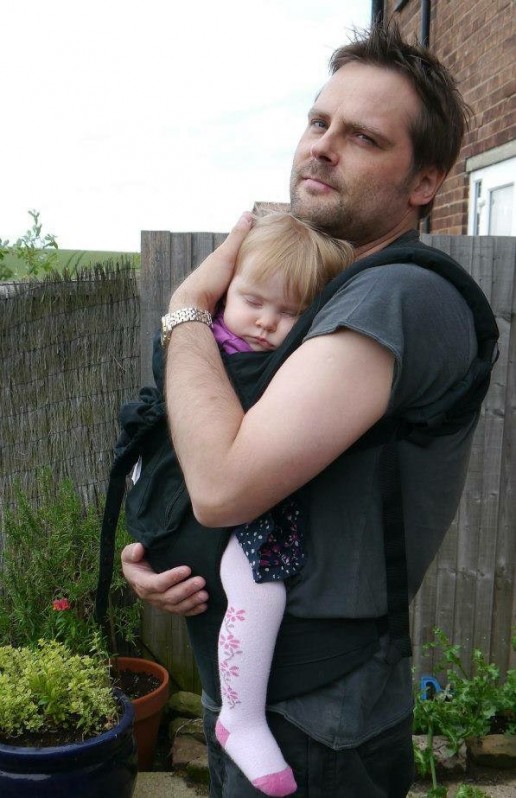
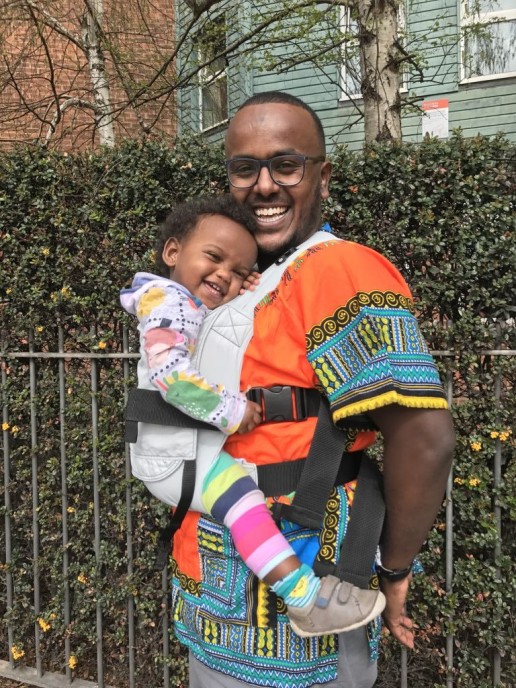
Most fathers in our current Western culture have less time to spend with their children than their mothers do. This is in part due to the current structures of working life such as maternity pay, paternity leave and the weight of social expectation, but the good news is that quality matters more than quantity.
Fatherhood is much deeper and richer than simply providing an income, and fathers who are deeply and lovingly involved in their children’s lives are giving them (and their partners) a very precious gift.
- Children who spend high quality time with their fathers have been shown to develop secure attachments to them, and the more of these secure relationships a child has the better!
- Dads who engage in a lot of talkative play seem to help their children to develop language skills more than mothers.
- Dads tend to encourage risk taking and exploration (which is the other half of secure attachment!) A child who is confident in the security of their primary relationships will feel more able to go out into the world, and try new things, when encouraged by a supportive dad they trust.
- Dads, on the whole, seem to have a different parenting style to mothers, which balances well. For example, dads tend to engage in more active play than mothers, and seem to be able to tolerate children’s frustration a little longer. Some psychologists believe this encourages children’s ability to problem-solve and promotes the steady development of independence.
- Studies also show that good father-child relationships help to prevent behaviour problems later in life, while also encouraging sociability and helping to develop reciprocal friendships.
- Children tend to do better at school and are less likely to engage in negative behaviours at a young age when their father is an active and positive part of the family.
- A 26-year-long study showed that the most important factor in developing empathy in children was father involvement.
Sharing the parenting builds a family unit from the inside up; all the members in it working together for the greater good.
- When fathers are involved in daily nurture of the children and in general household tasks, mothers tend to have lower levels of stress and depression, and this therefore likely to enhance mother-infant attachment too.
- If one parent is struggling with postnatal depression or anxiety, a secure attachment to the other parent acts as a buffer and can mean a child still has a positive experience of childhood.
- When children grow up in a household that has balanced role models, this environment can offset the prevailing culture and influence their own parenting.
Fathers who choose to carry their children, in arms or in slings, are providing a safe space for their children to grow in health and wellness.
The close contact and the trust that is developing may give dads a great sense of enjoyment and satisfaction. It may improve their own confidence in their parenting and give them a mood lift if needed (as dads suffer from postnatal mood disorders too.)
Not everyone wants to use a sling; and that’s ok. It is the building of the relationship and the close contact that matters, and many dads do a lot of in-arms carrying.
If they use a carrier, they can have hands free to care for other children, or to do things like mow the lawn or have a pint at a party! They share the load of parenting, which can be very valuable when a new baby arrives and toddlers feel displaced and unsure of themselves and need a lot of cuddles. Slings help dads to take their children to places that cars and buggies cannot reach… so they can explore the world as much as they wish.
Babywearing is brilliant. If you see a babywearing dad, or a hands-on dad, give them a smile and a thumbs up – they deserve it!
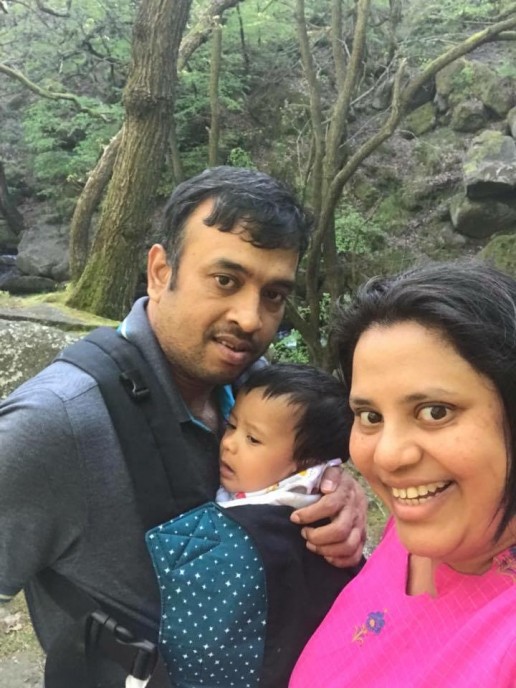
Further Reading
Kyle D. Pruett, Fatherneed: Why Father Care is as Essential as Mother Care for Your Child, (New York: The Free Press, 2000), p. 41-42
Richard Koestner, et al., “The Family Origins of Empathic Concern: A Twenty-Six Year Longitudinal Study,” Journal of Personality and Social Psychology 58 (1990): 709-717.
https://www.huffingtonpost.com/dr-gail-gross/the-important-role-of-dad_b_5489093.html

